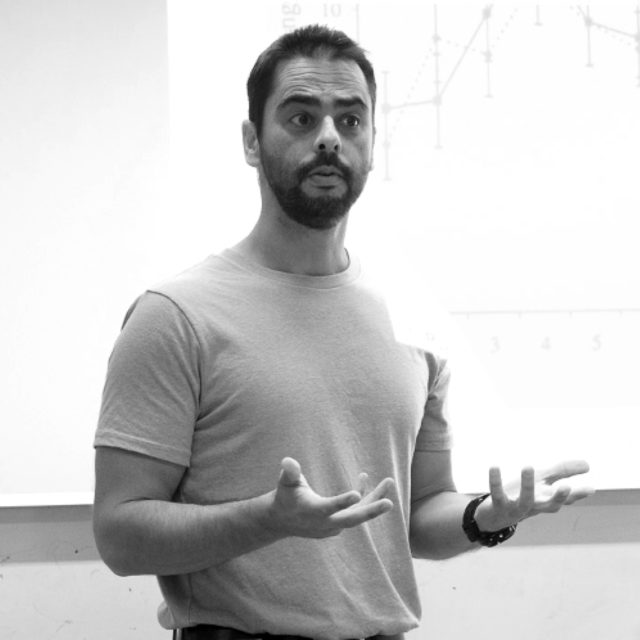Elaine J. Francis
Interpreting Gradient Acceptability Judgments in Syntax
Conferencista
-
Elaine J. Francis

Elaine J. Francis
Elaine J. Francis is a professor in the Department of English at Purdue University, where she has been teaching linguistics and directing the Experimental Linguistics Lab since 2003. She completed her PhD in linguistics at the University of Chicago in 1999 and taught for three years in the Department of English at the University of Hong Kong. In her research, she investigates syntactic, discourse, and processing-based factors that affect the realization of syntactic alternations in English and Cantonese. Her research articles have been published in journals including Cognitive Linguistics, Journal of Linguistics, Language and Cognition, Linguistics, Natural Language and Linguistic Theory, and Lingua. She is the co-editor with Laura Michaelis of the edited collection Mismatch: Form-Function Incongruity and the Architecture of Grammar (CSLI Publications, 2003) and the author of the forthcoming book Gradient Acceptability and Linguistic Theory (Oxford University Press, 2022).
Moderador(a)
-
Rui P. Chaves

Rui P. Chaves
My work focuses on syntax and semantics, with a particular interest in unbounded dependency constructions, coordination, ellipsis, and linearization. In my research I employ corpora, computational models, and controlled psycholinguistic experimentation. One of my goals is to understand how idiosyncratic linguistic phenomena can be shaped by the interplay of linguistic and cognitive factors. I have specialized in surface-driven construction-based grammatical frameworks such as HPSG/SBCG, and implemented medium-sized computational models for research purposes.
Resumo →
Elaine J. Francis
Interpreting Gradient Acceptability Judgments in Syntax
What conclusions can we draw from gradient patterns of acceptability judgments about language users’ implicit grammatical knowledge? In this overview talk, I highlight some of the main arguments from my forthcoming book, Gradient Acceptability and Linguistic Theory (Oxford University Press 2022), in the context of previous and ongoing studies from our lab at Purdue and published studies by other authors.
Among linguists working within various syntactic frameworks, there is a consensus that many factors in addition to syntactic constraints can affect the responses obtained in an acceptability judgment task (Schütze 1996, 2011). These include semantic, pragmatic, and prosodic constraints as well as general cognitive factors. However, each syntactic framework comes with certain assumptions that influence how linguists tend to interpret judgments in relation to speakers’ knowledge of grammar. In this presentation, I identify two such assumptions: (1) strict form-meaning isomorphism vs. flexible mappings and (2) probabilistic vs. categorical constraint application. I then present sample data sets showing how different theoretical assumptions lead to different interpretations of the same judgment data. I argue that while the patterns of judgments shown in these data sets are compatible with various theoretical interpretations, they can plausibly be interpreted as involving soft constraints within the grammar. Finally, I show how data from additional methods (corpus studies, production tasks, and comprehension tasks) can shed further light on competing theoretical accounts.
